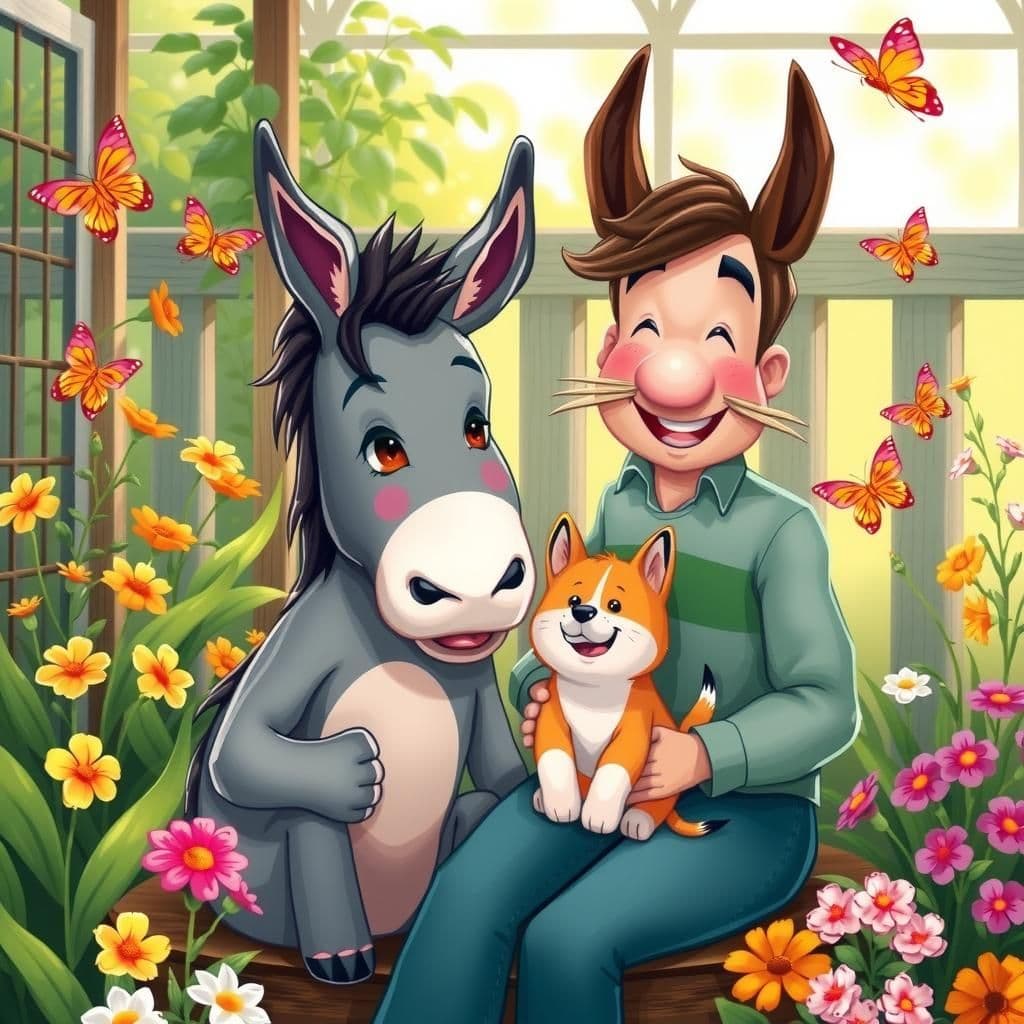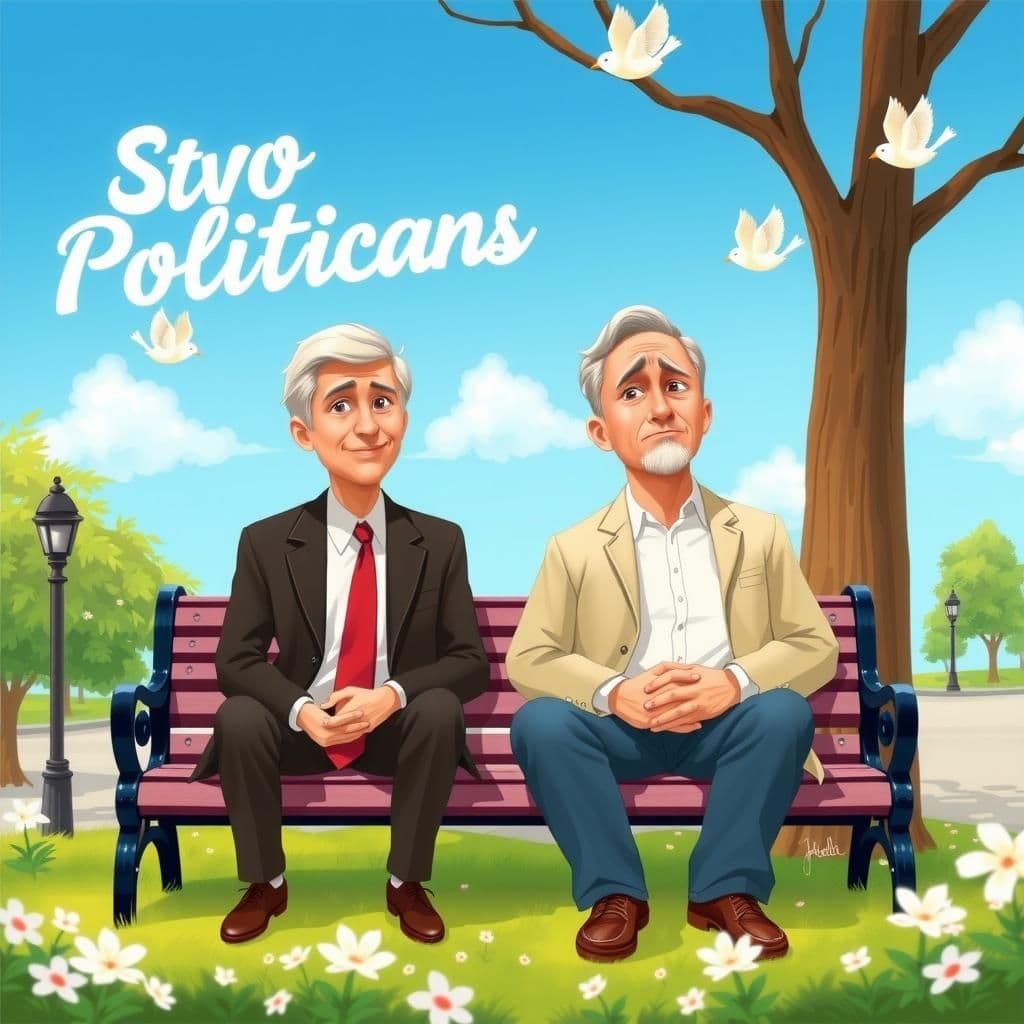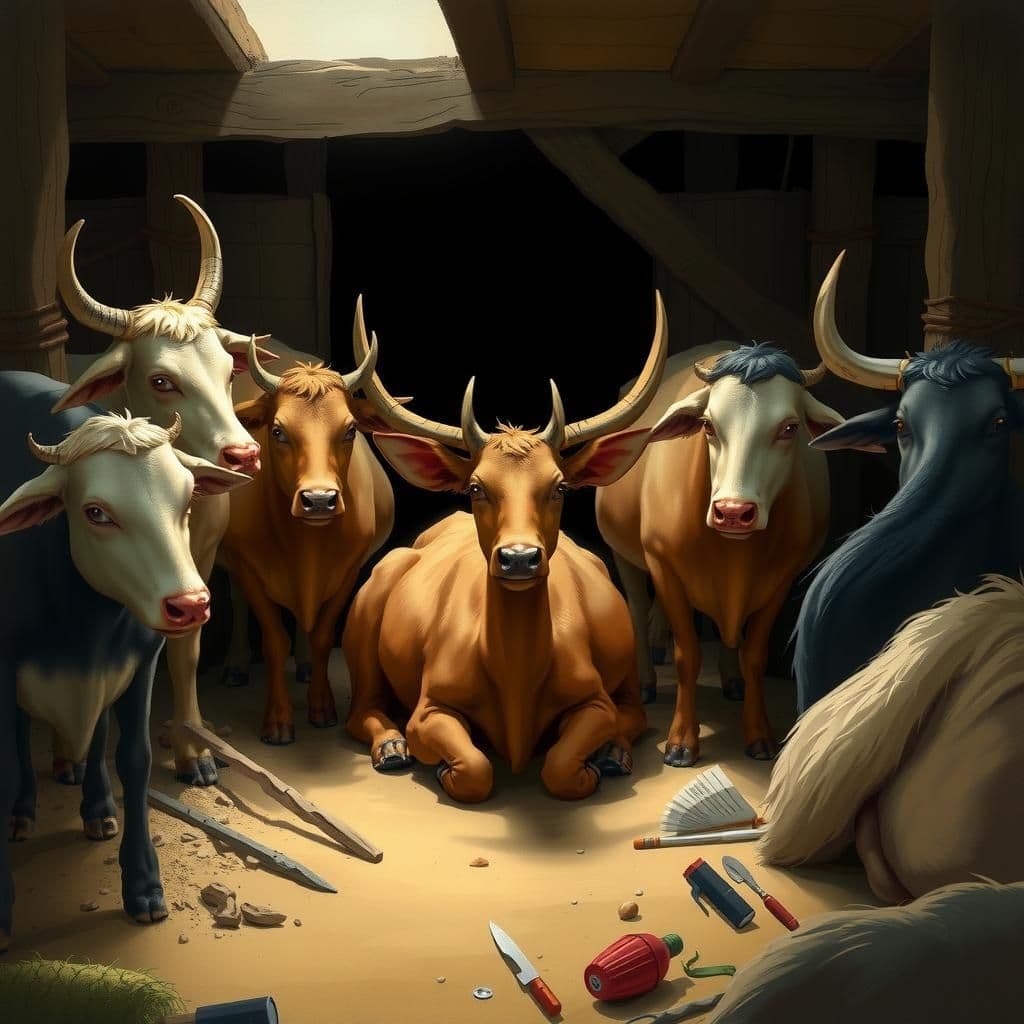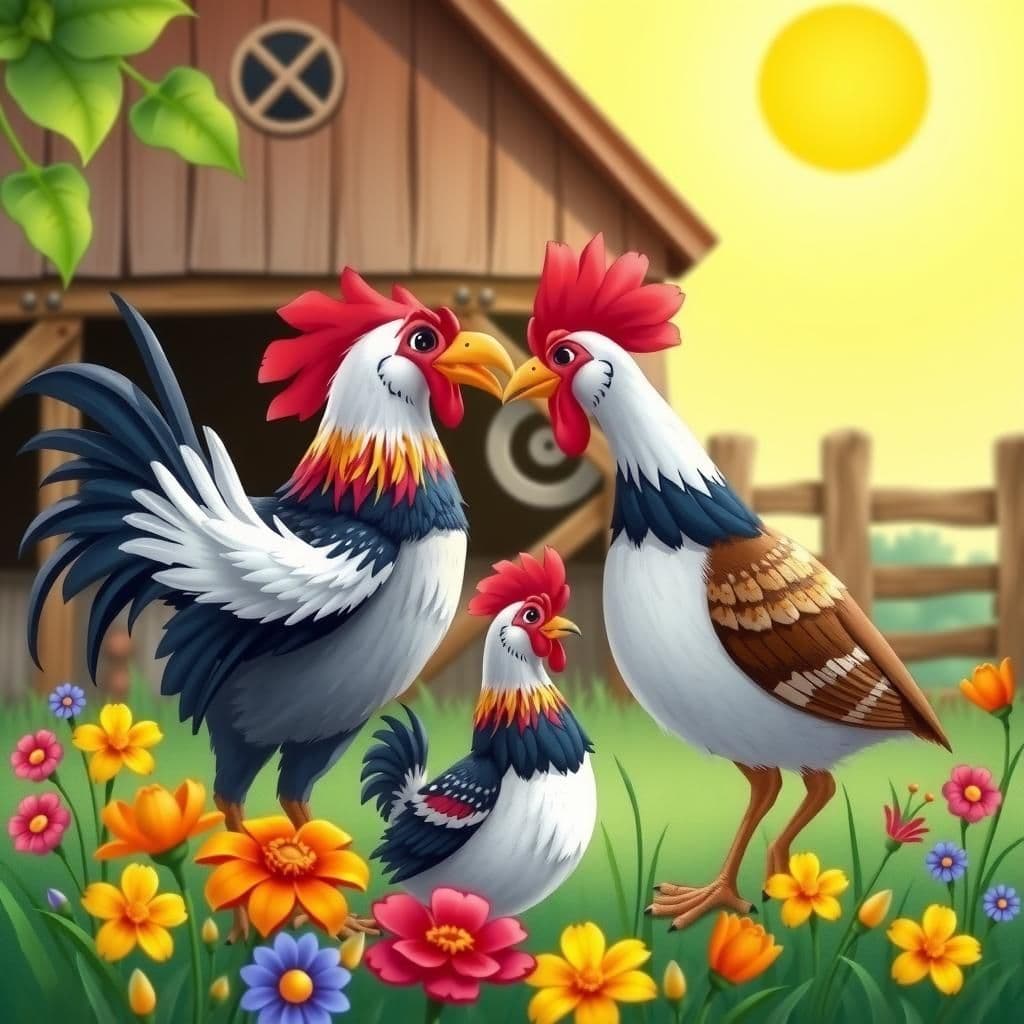The Donkey and the Lapdog

Story Summary
In "The Donkey and the Lapdog," a donkey envies the lapdog's affectionate bond with their master and tries to mimic its behavior to earn love, only to face punishment for his clumsiness. This heartwarming moral story teaches that one’s unique talents cannot be forced or imitated, reminding readers that true gifts are inherent and should not be overshadowed by the envy of others. As one of the engaging short stories with moral lessons, it serves as a valuable reminder for students about the importance of self-acceptance.
Click to reveal the moral of the story
The moral of the story is that one should embrace their own unique talents rather than attempting to imitate others, as not everyone possesses the same abilities or charm.
Historical Context
The story of "The Donkey and the Lapdog" draws from the rich tradition of fables popularized by Aesop in ancient Greece, which often used animal characters to convey moral lessons. This fable, like many others, highlights the themes of identity and the folly of trying to imitate others without recognizing one's own inherent qualities. Variants of this tale have appeared in various cultures, emphasizing the universal message that one should embrace their unique talents rather than envy those of others.
Our Editors Opinion
In modern life, the fable of "The Donkey and the Lapdog" serves as a reminder that embracing one's unique strengths is more productive than imitating others in pursuit of approval. For instance, a highly skilled but introverted software developer may struggle if they try to adopt the flashy presentation style of their extroverted colleague in a meeting, ultimately achieving better results by focusing on their analytical prowess instead.
You May Also Like

Two Politicians
In "Two Politicians," a short tale with moral undertones, two politicians reflect on the elusive nature of gratitude in public service. One yearns for citizen appreciation, while the other cynically observes that such recognition can only be achieved by leaving politics. Ultimately, they share a moment of understanding and decide to be content with their positions, humorously swearing to accept their access to public funds, illustrating the moral lesson found in many famous fables.

The Stag in the Ox-Stall
In this short story with moral, a Stag, chased by hounds, hides among oxen in a shed, believing he has found safety. Despite warnings from the Ox about the master’s keen observation, the Stag’s overconfidence leads to his capture when the master discovers him. This animal story with moral teaches the lesson that trusting in false security can lead to one's downfall, emphasizing the importance of being aware of real dangers for personal growth.

The Gamecocks and the Partridge
In this fable story with moral, a man introduces a tame Partridge to his two aggressive Gamecocks, who initially distress the newcomer with their hostility. However, upon witnessing the Gamecocks fighting each other, the Partridge realizes that their aggression is not personal, leading to a valuable lesson about not taking others' actions to heart. This short moral story highlights the importance of understanding that conflicts often stem from nature rather than individual intent.
Other names for this story
Donkey's Dilemma, Lapdog Lessons, The Misguided Donkey, When Donkeys Dream, Talent Misfit, The Clumsy Attempt, A Donkey's Wish, The Braying Blunder
Did You Know?
The story illustrates the folly of trying to emulate others without recognizing one's own unique abilities, emphasizing that true charm and grace cannot be feigned, as seen in the donkey’s clumsy attempts to mimic the lapdog’s affectionate behavior. This theme resonates with the idea that self-acceptance and understanding one’s own strengths are essential for genuine social acceptance.
Subscribe to Daily Stories
Get a new moral story in your inbox every day.